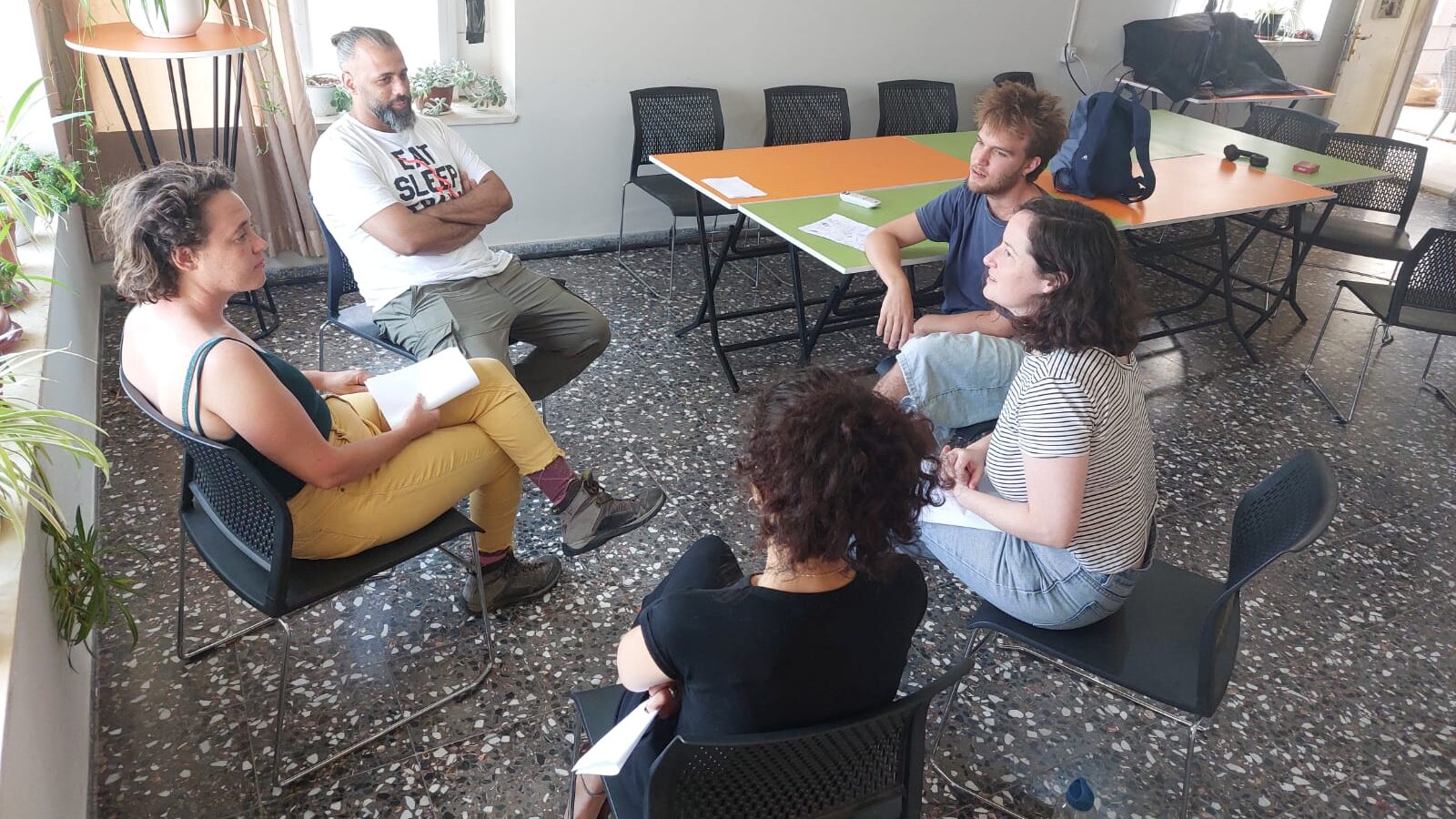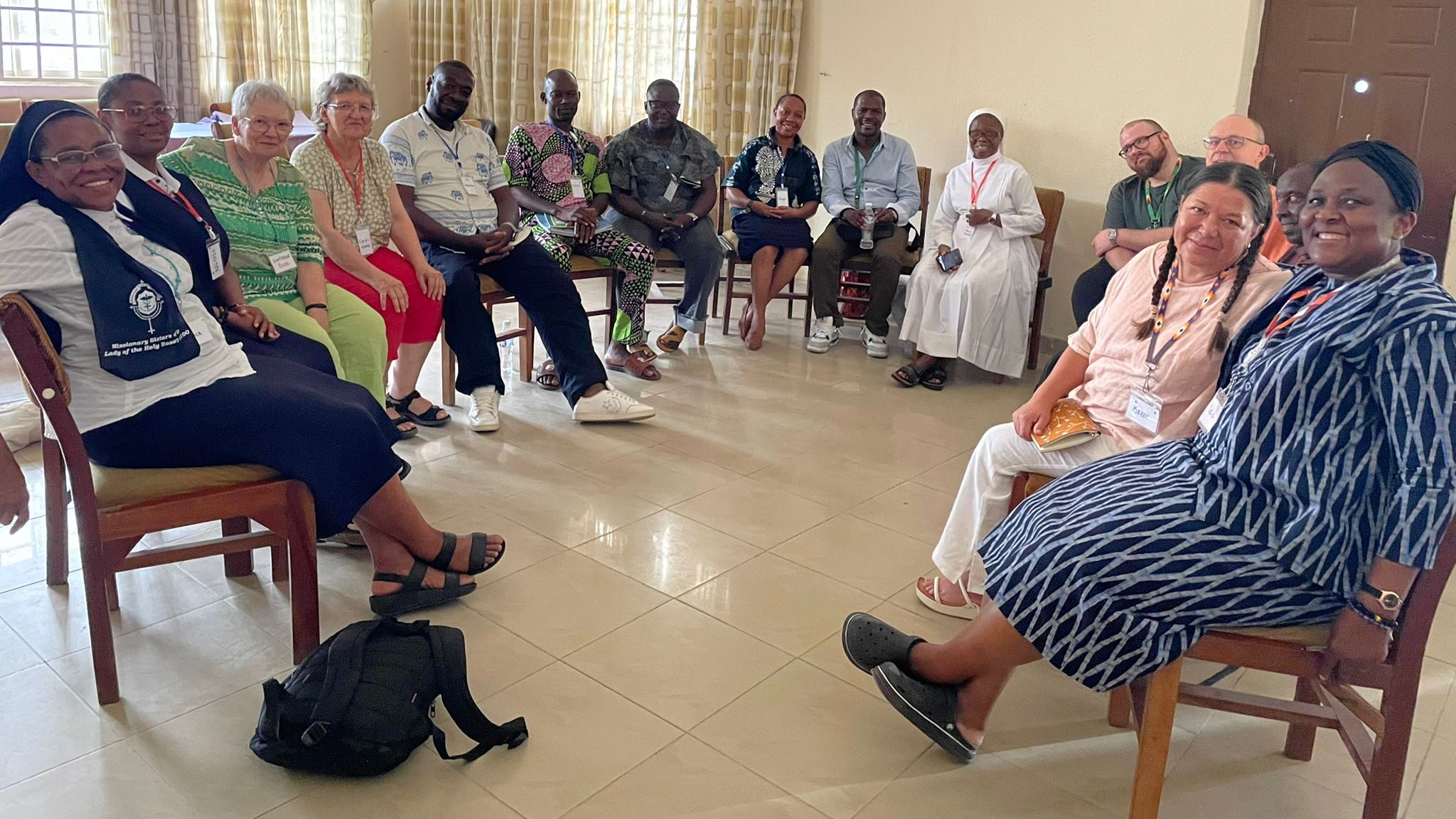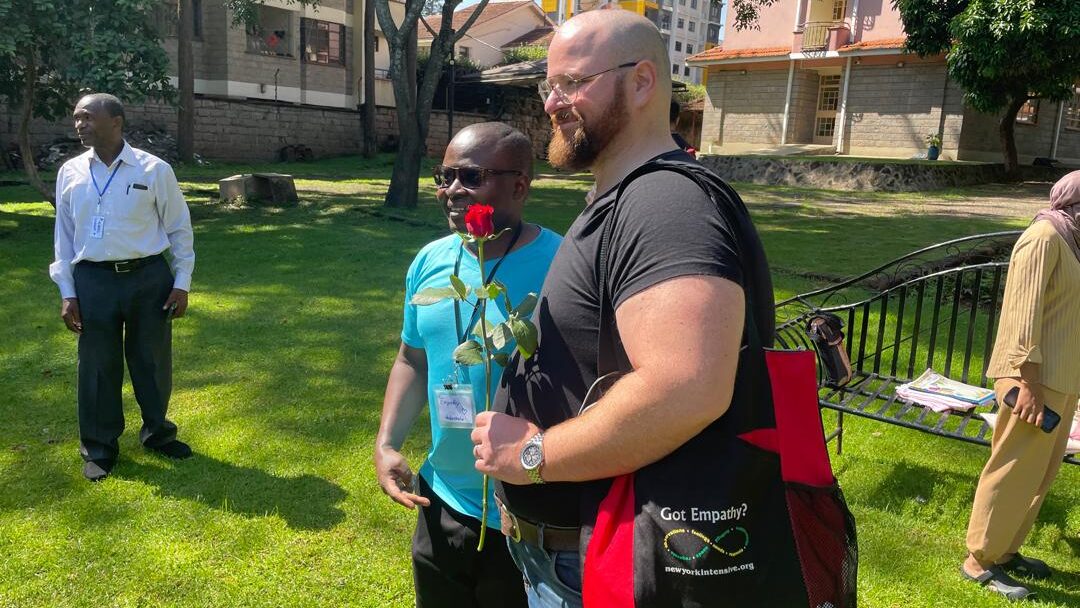
Nonviolent Communication (NVC) as a Core Practice
At the heart of our work lies Nonviolent Communication (NVC), a relational framework that transforms how individuals and groups engage with conflict. Traditional conflict resolution often relies on positional bargaining and strategic negotiation, which can entrench adversarial dynamics rather than foster meaningful resolution. NVC shifts the focus from winning an argument to understanding human needs, enabling authentic engagement, emotional self-awareness, and deep listening. By strengthening dialogue facilitation, de-escalation, and enemy image transformation, NVC helps individuals and communities move beyond blame and hostility, opening space for sustainable conflict resolution and reconciliation.
- Provides the relational tools for deep listening, self-reflection, and conflict resolution.
- Moves beyond positional bargaining, allowing individuals to engage authentically.
- Strengthens dialogue facilitation, de-escalation, and enemy image transformation.

Restorative and Transformative Justice Approaches
In many conflict-affected societies, justice is often equated with punishment, reinforcing cycles of retribution and deepening social divisions. Restorative and transformative justice approaches offer a different paradigm—one that centers relational repair, accountability, and collective healing. By using structured dialogue processes, these approaches create opportunities for victims, offenders, and affected communities to engage in truth-telling, repair harm, and re-establish trust. Rather than focusing solely on individual wrongdoing, transformative justice addresses the broader social and systemic conditions that contribute to conflict, fostering equity, dignity, and reconciliation.
- Prioritizes relational repair, accountability, and collective healing over retributive frameworks.
- Uses structured dialogue to address harm, repair relationships, and build trust.

Trauma-Informed Conflict Engagement
Unresolved trauma is one of the most powerful drivers of conflict at both individual and collective levels. Violent conflict often leaves deep psychological and emotional wounds, leading to heightened reactivity, cycles of fear, and inherited patterns of aggression or avoidance. A trauma-informed approach to conflict engagement acknowledges the neurobiological impact of trauma, integrating self-regulation strategies, emotional resilience practices, and psychosocial support into peacebuilding efforts. By addressing the underlying physiological and psychological dimensions of conflict, this approach helps prevent re-traumatization, promotes healing, and creates conditions for meaningful dialogue and reconciliation.
- Integrates neuroscience-based self-regulation and emotional resilience strategies.
- Recognizes trauma’s role in conflict escalation and generational cycles of violence.

Systemic and Structural Change Strategies
Conflict is rarely an isolated event; it is deeply embedded in social structures, institutional policies, and historical power imbalances. Sustainable peace requires not only interpersonal reconciliation but also long-term systemic transformation. Our work supports policy reform, institutional transformation, and conflict-sensitive governance, ensuring that peacebuilding is not just a temporary intervention but an integrated and enduring process. Through capacity-building programs, institutional advising, and research-driven methodologies, we help organizations, governments, and civil society actors embed nonviolent principles into legal, economic, and political frameworks, creating the foundations for resilient, equitable, and just societies.
- Supports policy reform, institutional transformation, and conflict-sensitive governance.
- Develops capacity-building programs for peacebuilding organizations and governments.